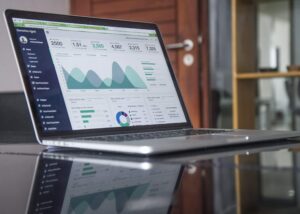One thing that will never change is the fact that people are unique. Populations are predictable, but individuals are unique. So what happens when an individual wants to use tools optimized for populations? Disappointment, frustration, and loss of willpower.
By “tools” I am referencing not only actual tools like hammers and nails or software, but also intangible and mental tools like habits and mannerisms. This is about anything that has the possibility of being repeated, designed, and potentially even automated if you are lucky.
Unfortunately the marketplace does not reward businesses for creating tools that are uniquely optimized for you specifically. And yet, those are the tools you need. So if you cannot find the tools you need to succeed, where do you get them?
Modify the Tools you Like
When I first started on my journey of self improvement, I found I liked a lot of planners and scheduling methods. Surely they were the best way to do things since they sold so many of them, right? Yet none of them felt “just right” to me. I always found I had a few issues with each one of them but it was never enough to stop using them abruptly.
So after becoming frustrated one too many times I decided that was enough. I took my planner and outright ignored the “correct” way to use it. I had my own method to using it and made it my own. The problem with using these tools the traditional way is that they are optimized for the creator, not you.
If you find you really do not like doing a certain task the “correct” way then change it! Maybe you hate spreadsheets and would rather use sheets of paper. Both have their place of course, but if you have the option between the two and neither will be at a disadvantage then choose the one you work with best. I am sure we can agree that a spreadsheet for budgeting would be much more productive if formatted correctly, yet I prefer to start on paper so I don’t have to spend time thinking about formatting and can instead focus on the details.
Create the Tools you Need
Nothing beats creating the exact tools you need to be productive. This will take longer to properly set up and will likely need adjusting, but it is hard to beat something made to do exactly what you want.
Let’s use my schedule as an example. I’ve tried making a todo list in my phone’s reminder app. I have tried using my email’s calendar. Nothing covered exactly what I wanted somehow. So what did I ultimately decide to do? I took a yellow sheet of paper and broke my day down into quarter hours, from the moment I woke up to the moment I went to bed. I planned my entire ideal day out and any time I lost track of what I needed to get done, I had this template to fall back on. I then extended this to include weekly and monthly scheduling.
Another example of this in practice is the iconic alarm clock. If you suffer from the dreaded snooze button fever, you know the dread of mornings all too well. Six snoozes later and you are late again. Personally my problem is I panic to turn it off quickly so I don’t disturb the sleeping baby. So once the alarm is off I lie in bed until I fall back asleep.
How do you fix this? I recently started wearing a smart watch and have it set to vibrate on my wrist until I get out of bed. Since there is no loud noise going off I don’t rush to turn it off and instead have to deal with my arm shaking until I get up. It is much harder for me to forget I just turned my alarm off and go back to sleep when I never actually turn it off.
Automate the Steps
Purely from an efficiency standpoint, if you do something more than once, you need to have a process for it. You are a bit more limited when it comes to physical tasks compared to online tasks, but that just makes the challenge more rewarding.
For instance, having a very specific grocery list for a month and cooking the same meals each week or every other week will allow you to free the task from bogging down your mind. If you know exactly what you are going to cook daily, then you don’t have to spend any time thinking about it.
Another task I am focusing on automating is the upkeep of my household. Each day I have a different weekly task to complete such as taking trash out or cleaning the fish tank, and each weekend focuses on a monthly task such as changing the air vents or deep cleaning carpet. You can take this one step further and do a yearly task at the beginning or end of each month, such as going over your insurance policies or reviewing your financial plan.
If you schedule these tasks out, you save valuable time and mental capacity attempting to remember everything. Worse yet, you might completely forget to do them and let them stagnate. A not so obvious example is failing to compare your insurance policies against other available options; if you don’t realize you are overpaying for insurance then you won’t be able to switch and save money.
If you use a computer even semi-regularly, you can and should be automating your workload with it. To rapid fire a few examples: if you send a lot of similar emails then use templates, if you do the same manual task repeatedly then setup a macro, and if you use a specific program frequently then learn all of the keyboard shortcuts. I read a story recently of a guy working for a transcript company. He made so much money in one month that they had to fire him (don’t get me started on how silly that is).
When they went to check his computer to give to a new employee, they realized he had hundreds of macros set up to type sentences he was repeatedly typing. This is of course an extreme example since I’m sure most people cannot remember hundreds of sentences let alone hundreds of key combinations, but the principle is the same: if you repeat it, then let the software handle the workload.
The Art of Efficiency
Hopefully this will give you a few ideas to implement in your personal life. Saving time, effort, and potentially money are all huge areas for improvement in our daily lives, so by making sure we are taking advantage of every tool available to us then we can hopefully optimize our routines and lead better lives for it.




